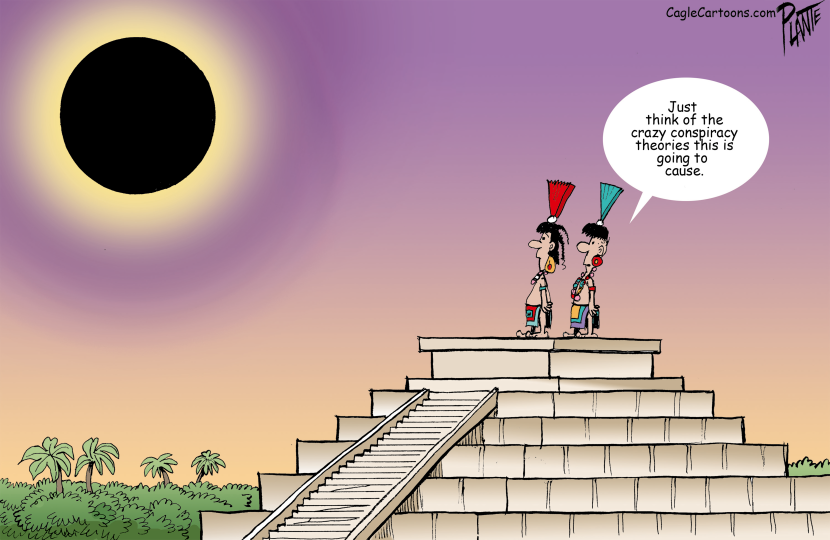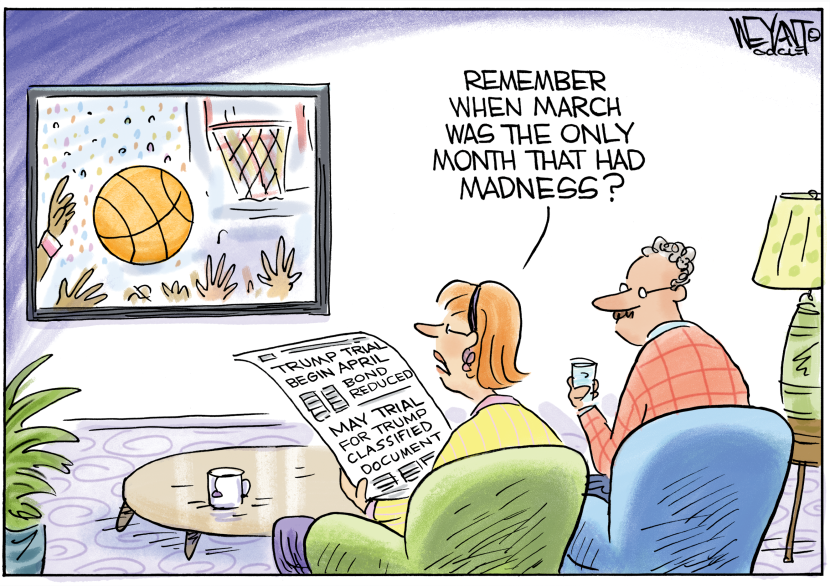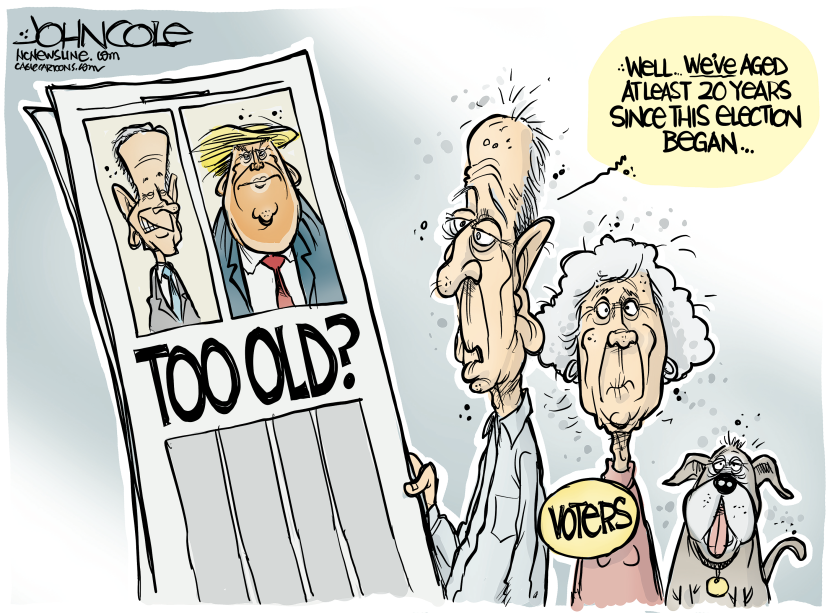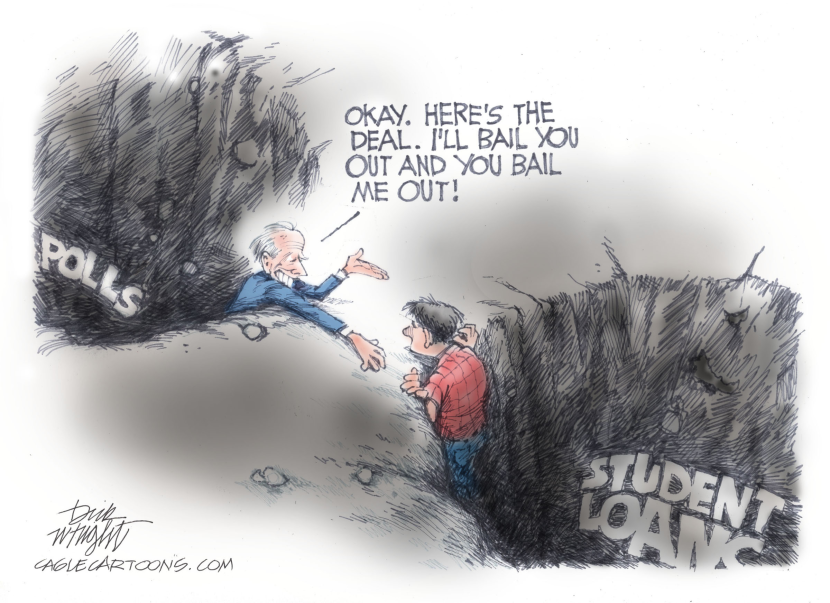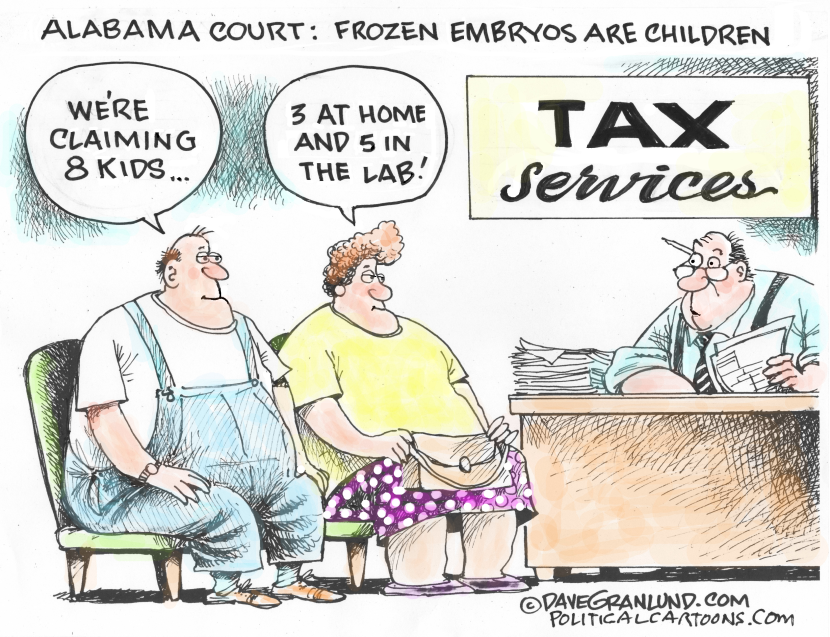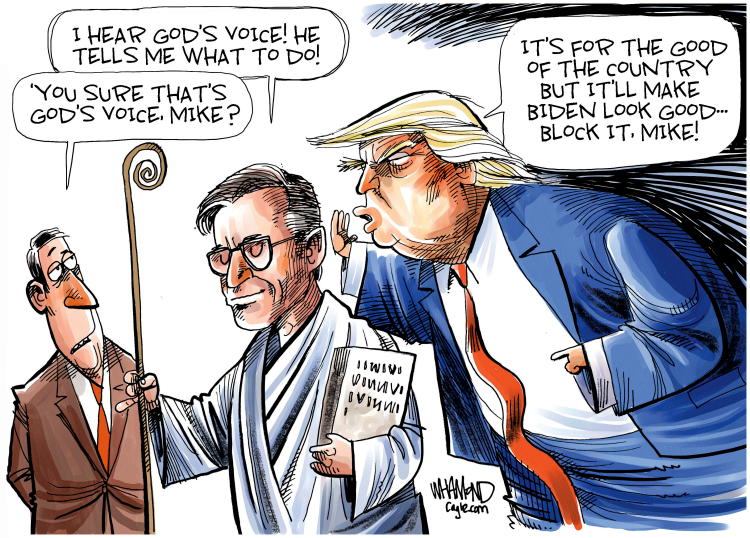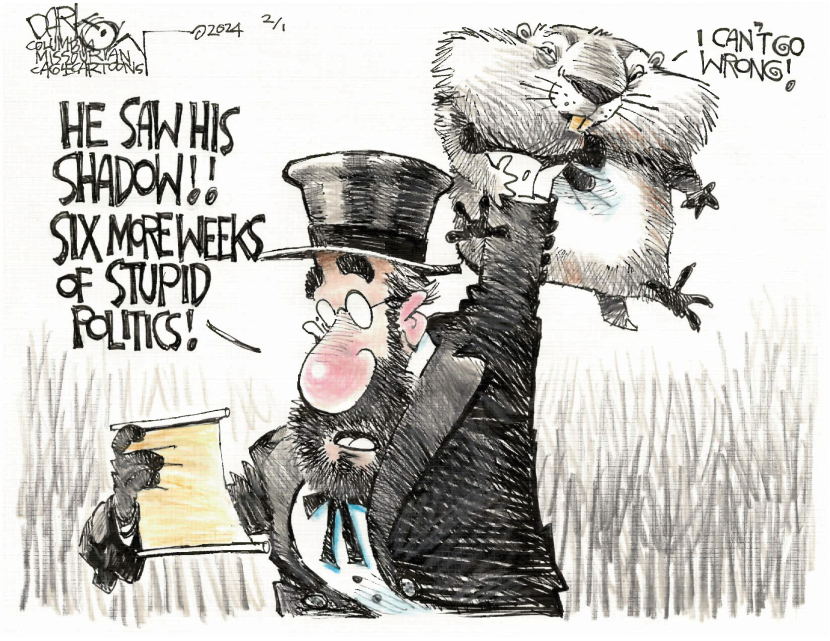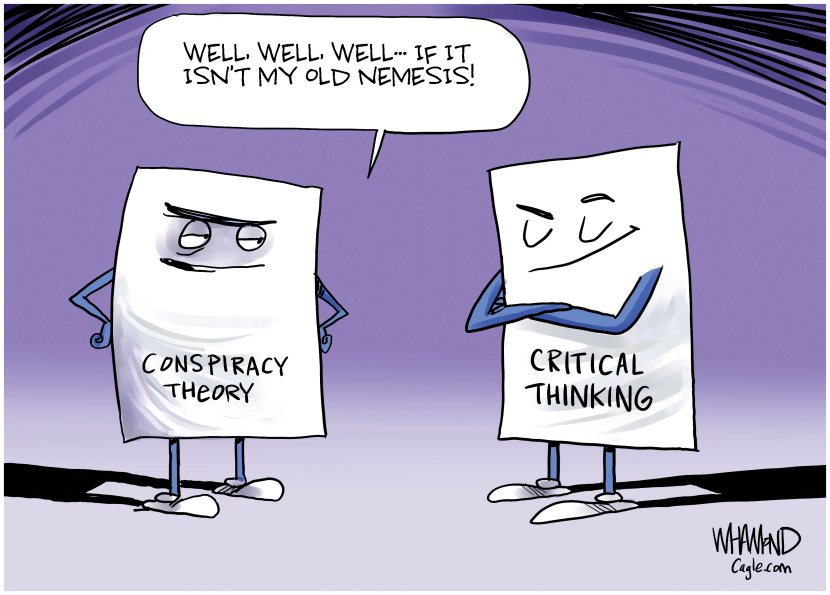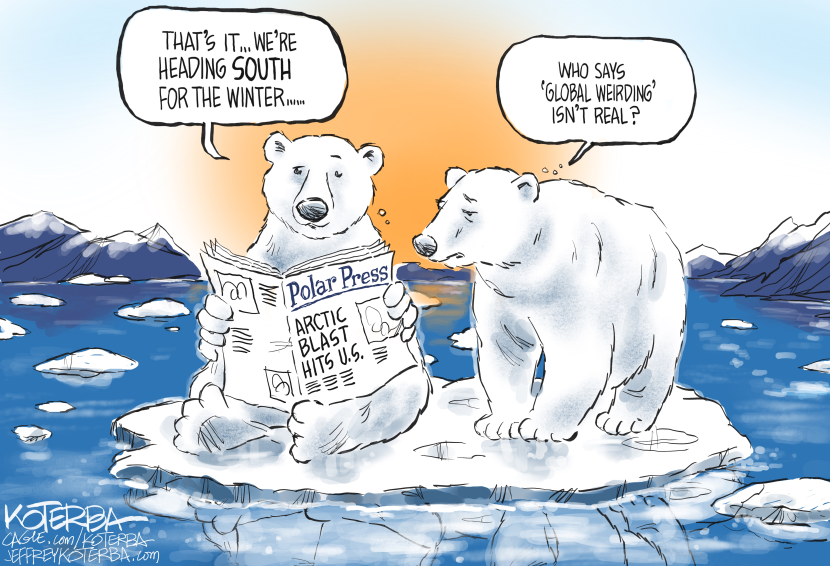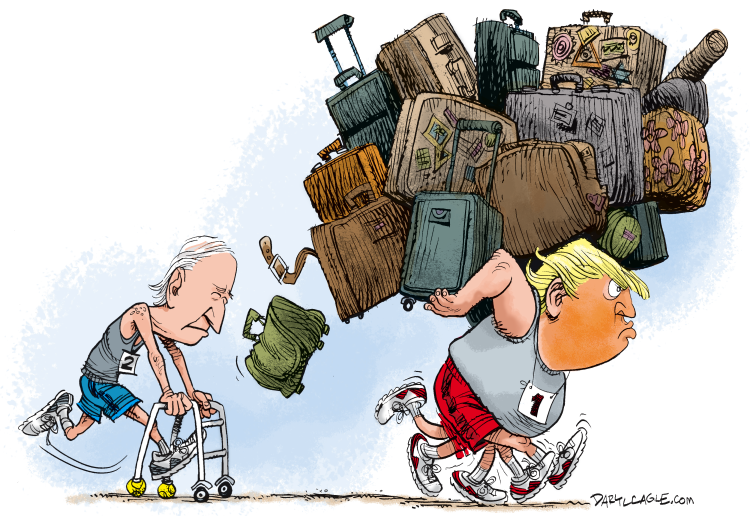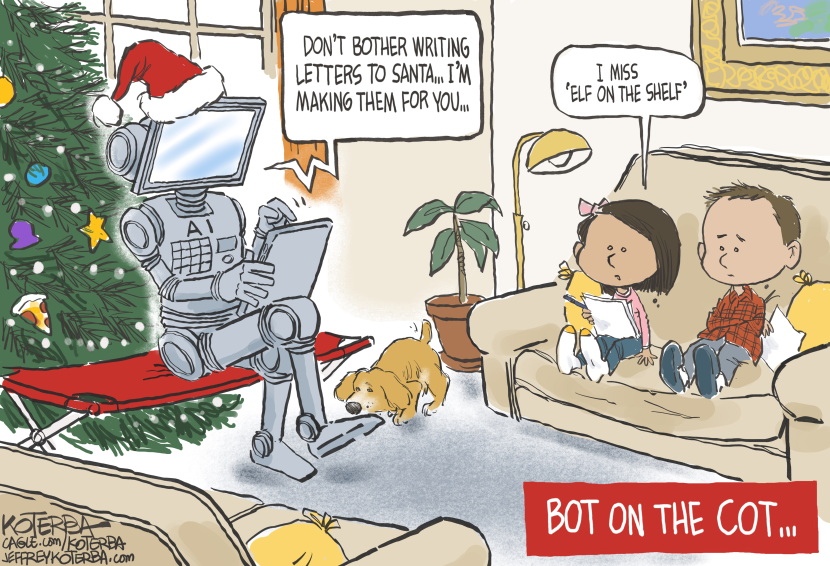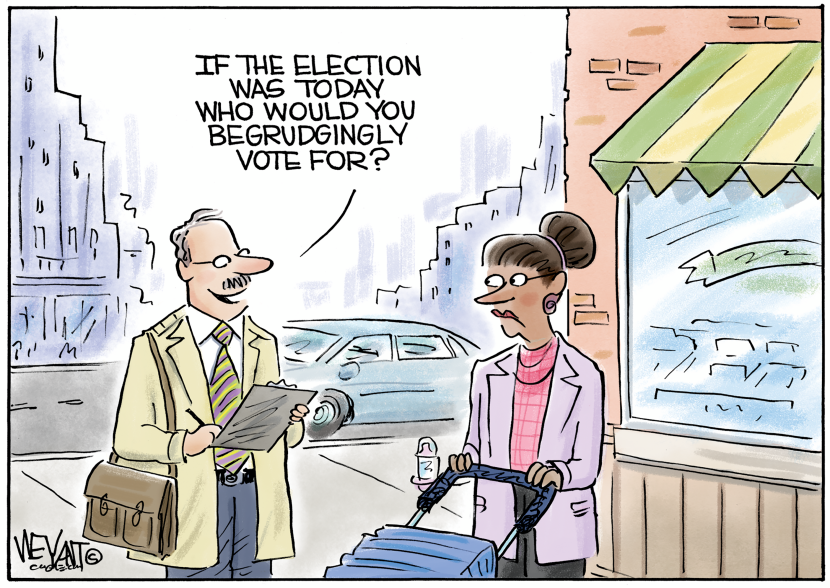The editorial cartoonist community is global, but it’s a tight knit group.
When one of us is fired for drawing something that is unfairly or mistakenly deemed racist or anti-Semitic, we unite in our outrage – and we rally to the defense of our colleagues.
That’s what happened with the firing of the great Steve Bell, formerly of the British newspaper The Guardian.
 On Oct. 16 Bell was summarily “cashiered,” as the Brits say, after more than 40 years with the Guardian, for submitting a cartoon of Israeli Prime Minister Benjamin Netanyahu that someone said contained what some could see as an anti-Semitic trope.
On Oct. 16 Bell was summarily “cashiered,” as the Brits say, after more than 40 years with the Guardian, for submitting a cartoon of Israeli Prime Minister Benjamin Netanyahu that someone said contained what some could see as an anti-Semitic trope.
The fatal cartoon – which was never published by the Guardian but which Bell later posted on X (formerly Twitter) – showed Netanyahu preparing to operate on his own stomach while wearing boxing gloves.
On his stomach was an outline of the Gaza Strip. The caption read “Residents of Gaza, get out now,” which referred to Netanyahu’s harsh evacuation order for Gaza residents.
Bell said his editor thought the cartoon could be seen as playing on the “pound of flesh” line spoken by Shylock, the stereotyped Jewish moneylender in Shakespeare’s The Merchant of Venice, explained with the cryptic words, ‘Jewish bloke; pound of flesh; anti-Semitic trope.’”
That was a stretch, to say the least.
It’s not unusual for cartoonists to have their drawings spiked or edited, but it is unusual for a cartoonist to get so unceremoniously and simultaneous fired and charged with drawing a possibly anti-Semitic cartoon.
When I interviewed Bell for my Caglecast podcast, he said he thought he was let go because he was going against the Guardian’s editorial line.
“My cartoon had nothing to do with the Merchant of Venice,” Bell said, “so it’s pointless discussing that because it’s not there.
“I haven’t been anti-Semitic. I’ve actually just gone against what the Guardian sees as their editorial line. The trouble is, I don’t really understand or know what their editorial line is.”
Bell was a freelancer under contract, not an employee of the Guardian, since 1981 (an arrangement that is common for editorial cartoonists). He’s had a few controversial cartoons over the years that his editors decided not to run for various reasons. That’s par for the course for any newspaper cartoonist.
But only a handful of his cartoons were stopped:
“There’s taste indecency, there’s bad language, there’s all that kind of stuff – but very rarely has it been for political reasons. This is an instance of political censorship, I think.”
Another problem, he said, echoing many of his fellow cartoonists around the world, is that newspapers are run by writers – “word people.”
They are timid people generally uncomfortable with cartoons and infamous for being over-cautious, too literal-minded and prone to seeing deeper meanings and “-isms” in cartoons that are not actually there.
“They tend to misunderstand images almost on purpose,” Bell said. “And this, I think, is a case of that.”
As he said, “It’s not merely a matter of sensitivity, it’s hypersensitivity. They’re apologizing before they’ve actually said anything. That’s the problem.”
Now that he’s been sacked for allegedly being anti-Semitic, Bell says he’s now “in a strange pickle.”
“The hint, the imputation, that my work is anti-Semitic is very damaging, and I’m not likely to find work anywhere else, especially since I’m so closely identified with one paper, i.e., The Guardian.”
When I interviewed Bell, the Israeli cartoonists Michael Kichka and Uri Fink were also on the call.
Both are big fans of Bell and his work, and Fink is president of Israel’s National Cartoonist Association, which has 40 members.
Kichka said they and their Israeli colleagues have drawn “much more extreme and terrible cartoons on Netanyahu” than the one Bell supposedly was sacked for. “None of us was fired, and none of us was accused of anti-Semitism, OK?”
The Israeli cartoonists held a unanimous vote, asking their cartoonist president, Uri Fink, to write a letter defending Bell and his cartoon. Kichka said, “So there’s not one single Jewish Israeli cartoonist who thinks there’s one ounce of anti-Semitism in your cartoon.”
Ironically, it sounds like if my friend Steve Bell needs to find some remote cartooning work, he should be able to find it amongst his fans in Israel.
––
Cartoon ©Steve Bell, reprinted here with permission. Daryl Cagle is the publisher of Cagle.com and owner of CagleCartoons.com, a syndicate that distributes editorial cartoons and columns to over 500 subscribing newspapers. See Daryl’s blog at DarylCagle.com and watch his video podcast “Caglecast” about editorial cartoons at Caglecast.com
